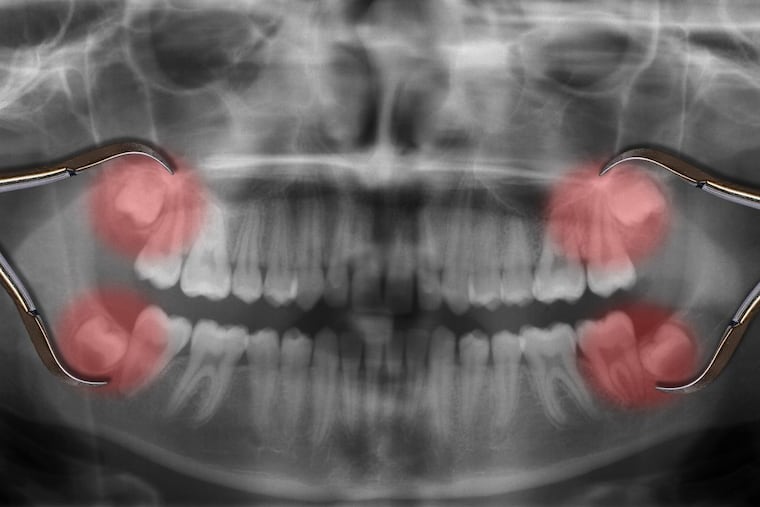Penn finds a surprising benefit to wisdom tooth surgery: better taste
Don’t run to your dentist in hopes of improving your appreciation of fine food, though.

Having wisdom teeth removed has long been associated with at least a temporary loss of the ability to taste, but no one had studied what happened long-term.
Richard Doty, director of Penn Medicine’s Smell and Taste Center, decided to use his center’s extensive database to find out.
He and Dane Kim, a third-year student at the University of Pennsylvania School of Dental Medicine, were surprised by the results. When they analyzed taste tests of people who had had wisdom teeth removed decades earlier, they found that those who had had surgery actually were better able to detect key flavors — salt, sugar, bitter, and sour — than patients who still had their wisdom teeth, also known as third molars.
» READ MORE: Penn researcher explains why COVID-19 affects our sense of smell
Don’t run to your dentist in hopes of improving your appreciation of fine food, though.
Doty said the taste difference was very small — just 3% to 10% — and might not be detectable to most people. Many people, he said, can lose taste on one side of their mouth and not even notice. Plus, most of what we think of as our sense of taste really comes from smells. Without your nose, you would not recognize the flavor of chocolate or strawberries. All you’d get from coffee is bitterness. Caffeine is what taste testers use to measure response to bitter tastes.
In both groups, tasting ability declined with age, and women were better tasters than men.
The study used the records of 1,255 people who been evaluated at the Smell and Taste Center. Most of them, or 891, had had wisdom teeth extracted an average of more than 20 years earlier while 364 had not.
Immediately after the procedures, as many as 20% of people lose tasting ability on the side of their tongue adjacent to the wisdom tooth removal, Doty said. Nerves that connect to taste buds at the front of the tongue run near the molar roots and can be damaged during the procedure. The dysfunction usually resolves within a year.
The patients whose records were used in the new study may not be representative of the general population, because most of us have never sought help for smell or taste loss, he said.
He can only guess why taste might have improved after teeth were removed. One possibility, he said, is that nerves supplying taste buds at the back of the tongue started working harder after the nerves that supply taste buds at the front were injured. Another is that nerves affected by surgery became more sensitive as function was restored.